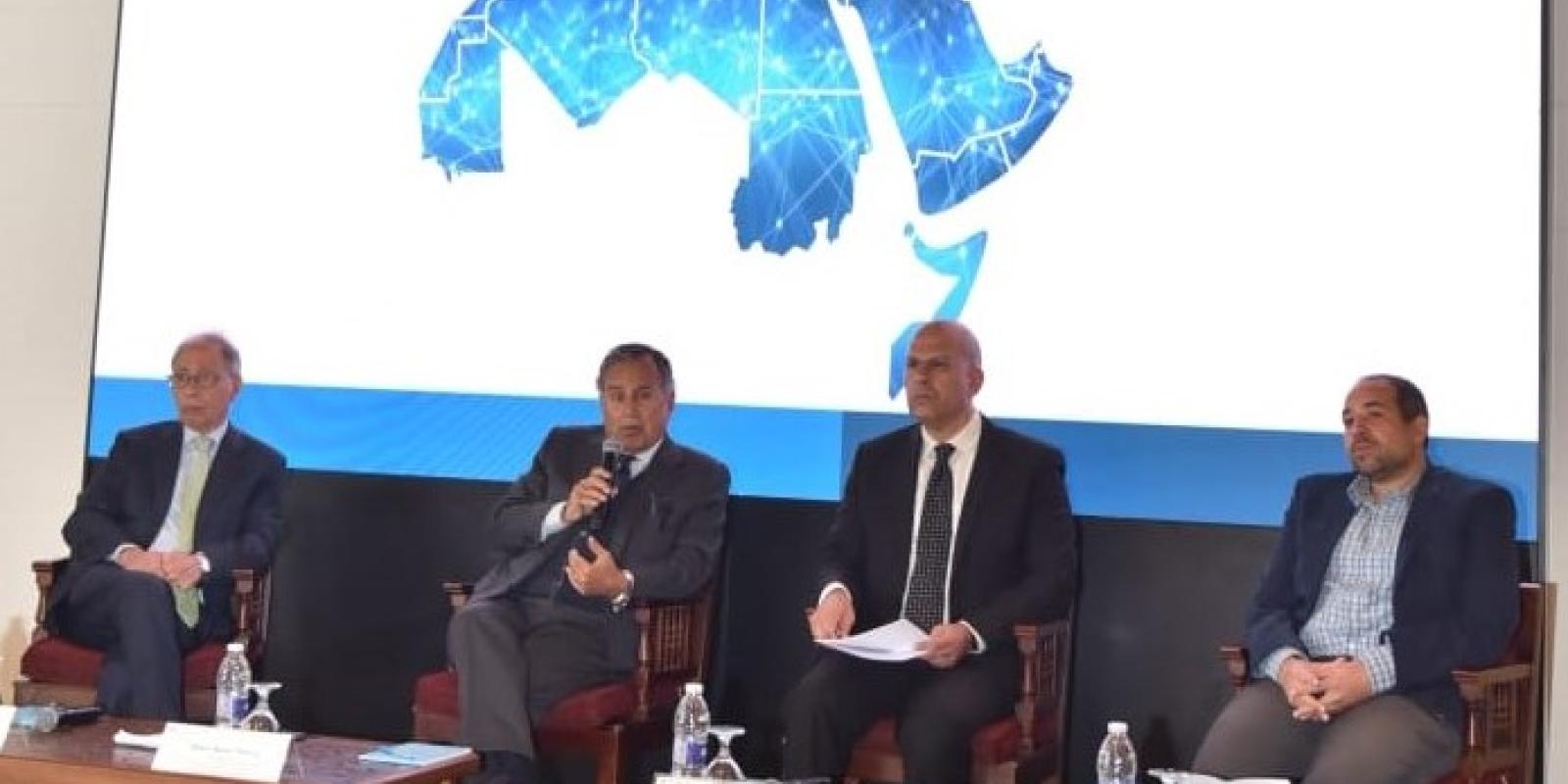
AUC Discusses the Findings of "AlMostaqbal: Envisioning A Better Arab Future" Report
The American University in Cairo (AUC) hosted yesterday a press conference and a panel discussion on the launch of the Blue-Ribbon Report of AUC Centennial Project “AlMostaqbal: Envisioning a Better Arab Future.” AlMostaqbal project, led by the School of Global Affairs and Public Policy, is an ambitious attempt undertaken by a distinguished group of Arab statesmen, academics, and opinion-makers to chart an alternative course for the future of the Arab world. Launched in 2019, AlMostaqbal aims at examining the paramount socio-economic, political, and security issues in the Arab world and the Middle East region.
Speakers at the press conference were Nabil Fahmy, project chair and dean of AUC’s School of Global Affairs and Public Policy and authors of the report: Ibrahim Awad, professor of practice and director of AUC’s Center for Migration and Refugee Studies; Amr Adly, assistant professor of political science at AUC and Karim Haggag ’92, professor of practice at the Department of Public Policy and Administration, AUC.
At the press conference, Fahmy said: “The Arab world must speak out about the future and it should be heard. The AlMostaqbal project brings together distinguished practitioners’ academic rigor and professional experiences to substantively engage in laying policy pathways for the future. An effort of paramount importance and an invaluable contribution.”
Haggag described AlMostaqbal project as “a forward-looking vision put forward by leading Arab thinkers in an attempt to envision a better future for our region, reflecting the finest tradition of public policy and strategic foresight.”
At the conference, the authors highlighted the main findings of the report and discussed the recommendations to address numerous paramount issues to enhance the region’s economic sustainability and ensure a more equitable distribution of resources.
Introducing the report, Dean Fahmy said that no single report could offer solutions and recommendations regarding the many complex challenges facing the region. “I do, however, believe that we have put forward invaluable suggestions in this report that can hopefully be built upon and expanded by others, both from the region and beyond,” he added.
Highlights of the report:
• The region needs to free-market space for autonomous socio-economic actors, which is possible in sectors not occupied by powerful, politically-connected interests.
• The growth of small- and medium-sized enterprises (SMEs) should be encouraged by offering better financial and physical capital and technology access.
• As for the Arab MENA countries, the report pointed out that they need to abandon the shallow trade liberalization approach they have followed in the past, which primarily focused on tariff reduction. A deeper form of integration, preferably on a sectoral basis, is a better alternative.
• Trade policies must be tied with industrial strategies to allow deeper forms of integration and the creation of regional value chains, a clear departure from the neoliberal stress on a minimal state role.
• Both national security and human security should be prioritized as they are, in fact, inseparable. Threats to human security often translate into national security threats and vice versa.
• The continuing stalemate in the Israeli–Palestinian peace process, including the potential total demise of the prospects for a two-state solution to the conflict, continues to be a major source of regional instability. Concerted efforts must be made to preserve the basis of the two-state solution to end Israel’s occupation of Palestine.
• There is an opportunity to push for reform through the processes of economic reconstruction in war-torn and war-affected countries in the Arab MENA, not only for the rehabilitation of basic services and infrastructure destroyed during war, but also the creation of viable macro-and microeconomic institutional and policy frameworks.
The panel discussion that followed the press conference gathered renowned scholars and senior experts from Egypt, the region, and around the world to examine and discuss the opportunities and challenges facing the Arab world and the Middle East from now until 2030.